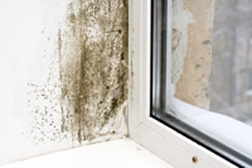 But while many a home warranty lawsuit involves home warranty companies, not all are confined to the extended warranty. In the case of one couple, the target of their litigation was the original builder of their home. At issue was whether or not - as the home’s second owner - the plaintiffs had the right to seek compensation from the builder for structural problems.
But while many a home warranty lawsuit involves home warranty companies, not all are confined to the extended warranty. In the case of one couple, the target of their litigation was the original builder of their home. At issue was whether or not - as the home’s second owner - the plaintiffs had the right to seek compensation from the builder for structural problems.In this case, water seepage around windows in the master bedroom.
According to court documents, plaintiffs Michael and Deborah Conway had purchased the home from the original purchaser. Defendants in the case and the builder of the home, The Cutler Group, had been contracted to construct the dwelling by the original purchaser.
That made no difference to the Conways, who suspected shoddy construction when they discovered water seeping around the perimeter of their bedroom windows. According to the home warranty lawsuit, the home had been built around 2003 or 2004. The Conways then purchased the home from the original owner in 2006. Two years after that, in 2008, the Conways discovered their water problem.
The Conways filed suit in June 2011 claiming a breach of implied warranty of habitability. Cutler disagreed, saying the warranty extended only to the original owner and not subsequent owners. A judge in the Bucks County Court of Common Pleas sided with Cutler in February 2012.
The Conways appealed to the Pennsylvania Superior Court, and the Court found for the plaintiffs in their decision. In the Court’s view, it was unreasonable to shut out a subsequent owner from the right to go after the builder for alleged defects, given that defects may not be readily apparent until years after the house was first inhabited. The house would have been about two years old when the Conways purchased the home, and four years old when water damage first became apparent in 2008.
Is occupancy subject to interpretation?
The Superior Court used a 1990 case for guidance. In that case, the plaintiff benefited from an extended warranty from the builder even though the plaintiff was the secondary purchaser. In that case (Spivack v. Berks Ridge Corp), the original purchaser was the developer, a separate entity from the builder who had never lived in the home. It was the absence of occupancy that swung the pendulum in favor of the plaintiff in Spivack.
However, on appeal to Pennsylvania’s highest court, the lower court’s ruling was overturned. According to the justices of the Pennsylvania Supreme Court, the Superior Court’s reliance on Spivack was misplaced. The Court also held that the interpretation of what comprises a first and second owner according to occupancy as it relates to home warranty insurance eligibility is more of a matter of public policy best left to state legislators.
Justice Seamus P. McCaffery penned the opinion that was released August 18. “We hold that a subsequent purchaser of a previously inhabited residence may not recover contract damages for breach of the builder’s implied warranty of habitability,” the opinion said.
READ MORE HOME WARRANTY INSURANCE LEGAL NEWS
Many, but not all policyholders have had their insurance claim denied through an act of bad faith insurance when an insurer has reneged on coverage. Home warranty lawsuits usually follow…
The case is Michael and Deborah Conway v. The Cutler Group Inc., case number 80 MAP 2013, in the Pennsylvania Supreme Court.
